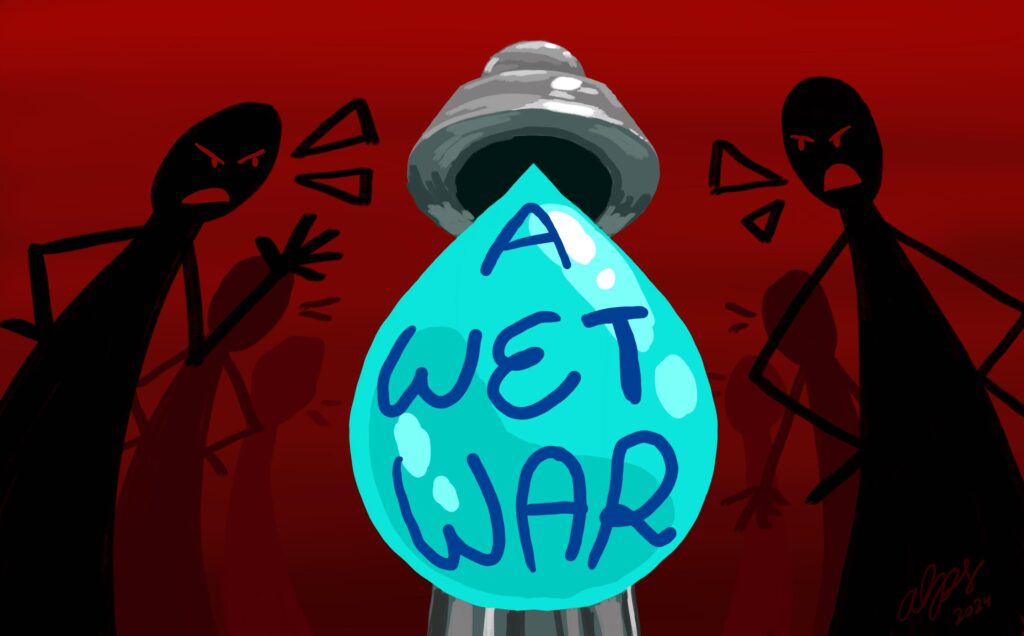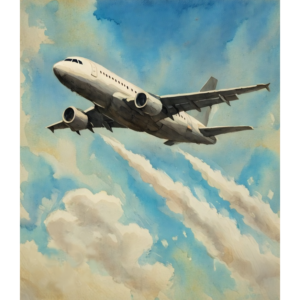
From the parched fields of Africa to the strained river basins of Asia, a disturbing new era of conflict is erupting around the world – and water is the cause. An explosive mix of climate change, population growth, and mismanagement of natural resources is depleting fresh water supplies at an alarming rate. The response by many nations? A militarized fight to secure what’s left. A future of mass violence, displacement, and economic devastation is promised unless we change course quickly.
To make things clear, this issue is not new to the 21st century. Violence over access to water has been waged for centuries, according to the Center for Strategic and International Studies (CSIS). However, as water becomes an increasingly rare commodity, national tensions are beginning to boil over. In the Middle East, ominous signs that such a “water war” scenario have begun, as regional powers are squaring off over the rapidly drying Tigris, Euphrates and Nile rivers. Allegations of upstream nations hoarding and polluting shared waters have fueled acts of sabotage and bloodshed. Several violent encounters have already occurred between Iranian and Afghan forces along the border. In the fertile valleys of East Africa’s Rift Valley, Turkana and Karamojong herdsmen are engaged in a brutal conflict with farming communities over dwindling water holes, driven to violence after years of poor rains. Hundreds have perished in tit-for-tat raids (World Water).
Transcending borders, religions, and cultural divides, the rising tide of strife is disrupting food production, destroying critical infrastructure, and displacing millions in some of the poorest corners of the globe. Aid agencies warn of a humanitarian catastrophe on par with the worst refugee crises in modern history if the crisis goes unchecked. So what can we do? Addressing water-related conflicts requires a multi-faceted approach. Improved water management practices are essential for equitable distribution and sustainable use of resources. This includes investing in infrastructure, adopting efficient irrigation techniques, and promoting water conservation. In a study done by the National Center for Biotechnology Information (NCBI), international cooperation is crucial, particularly in regions with shared water resources. Strengthening transboundary water agreements and enhancing diplomatic efforts can help mitigate conflicts and promote peaceful water-sharing. Organizations like the United Nations and the World Bank play vital roles in facilitating dialogue and providing technical and financial support for water projects. At the local level, community-based initiatives can foster cooperation and conflict resolution. Engaging local stakeholders in water management decisions and promoting participatory governance can help build trust and reduce tensions. Addressing the root causes of water-related conflicts, such as poverty, inequality, and corruption, is essential for long-term peace and stability.
Works Cited
Hall, N. (n.d.). No water wars?. CSIS. https://www.csis.org/analysis/no-water-wars
Levy, B. S., & Sidel, V. W. (2011, May). Water rights and water fights: Preventing and resolving conflicts before they boil over. American journal of public health. https://www.ncbi.nlm.nih.gov/pmc/articles/PMC3076402/#:~:text=PREVENTING%20CONFLICTS%20OVER%20WATER&text=Such%20preventive%20measures%20include%20(1,(3)%20mediation%20and%20arbitration.
Water conflict chronology timeline list. (n.d.). https://www.worldwater.org/conflict/list/
The views and opinions expressed are those of the authors and do not necessarily reflect nor represent the Earth Chronicles and its editorial board.




